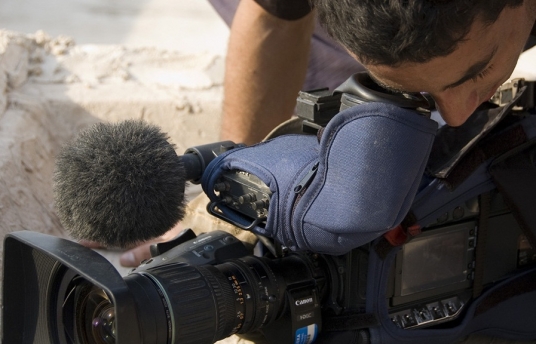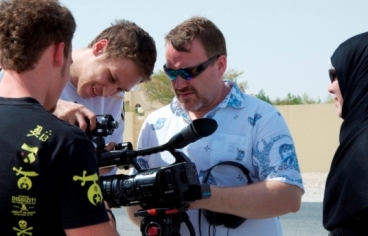2011
Documentary Filmmaking

- Start date:
- Mar 20, 2011
- Duration:
- 12 week
- Ability Level:
- Beginner, Students
Registration Closed
Do you want to learn how to make your own short documentary in Doha? DFI is hosting a 12 week Documentary Filmmaking course starting on March 20th.
Read More
Time: Sundays & Tuesdays 6PM – 8PM
Location: Katara, Doha Building 21
Language: English
Outline:
This course will combine lectures, screenings, demonstration and hands-on filmmaking.
In class, we will explore work from the very beginnings of non-fiction film to modern day documentary styles. We will screen excerpts from significant works by such filmmakers as Errol Morris, the Maysles Brothers, Werner Herzog, and other directors working in the observational documentary form (cinema vérité).
We will see how documentary production differs from traditional news television as we produce short documentary films on digital video. You (the students) will determine the subjects for these films, based on your skills and interests. As well, the level of discussion and the production skills taught will be determined based on your level of expertise and experience.
Textbook:
The textbook for this course is Directing The Documentary, by Michael Rabiger (4th edition).
Readings from this text will be relevant to class discussions, and we will be doing some exercises from the book. It is the kind of textbook that will continue to be a resource for you, if and when you decide to make your own documentaries.
The textbook can be purchased from DFI.
Objectives:
By the end of the course, you will have grounding in the genre of documentary and a better appreciation for important films in the history of documentary.
Through the production of short films, you will learn key skills – such as how to think cinematically and dramatically when telling true stories.
Timeline:
The timeline of the course will be similar to a film production schedule – about 12 weeks. So the course is divided into three sections just like the typical production process of a film:
- Pre-production (research and preparation);
- Production (logistics, shooting and interviewing); and
- Post-production (editing and completion of the project).
Attendance & participation:
Full attendance is expected in this course. Missing more than 2 classes may mean we ask you to reconsider your position on the course.
However, please remember that you are working in a team environment, which requires a large degree of inter-dependence. Which means your team’s performance will depend on your participation.
A high degree of discussion by individual students is required. So don’t be shy.
Reading Assignments:
You are expected to do your readings BEFORE coming to class. This will determine what you bring to in-class discussions. It will also help your production process.
Screenings:
In addition to viewing clips of films during class time, you will also be required to attend the documentary films being screened.
There will be screenings every Tuesday, starting Wednesday, March 22nd.
The screenings will take place at 6.00pm, in Katara.
You must participate in short discussions right after the screenings. Sometimes, you might have to write a short, critical review of the films.
Final Project:
Your final projects will be films made by small production teams. We do not have the facilities or time for every person to make his/her own film. You may be asked to lend a hand as a crewmember on a film that’s being produced by another team.
The goal of the course will be to complete short films that are of sufficient quality that they can find a home on any number of broadcast outlets, or festivals.
We would like all of the work produced to find a home.
